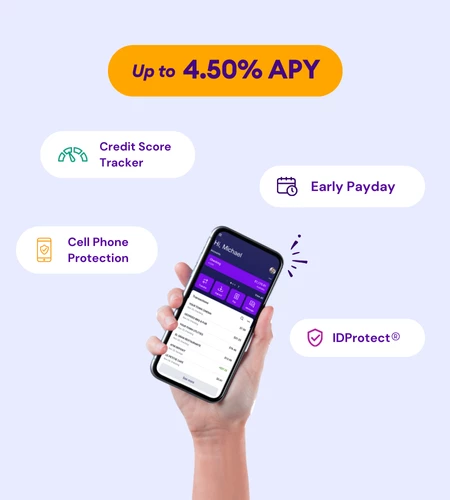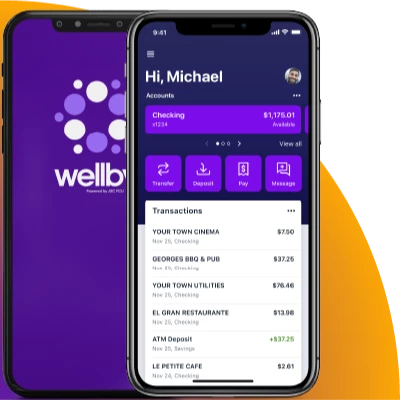February 6, 2025 | by Brian Truong

Unpacking Mortgage Types for First-Time Buyers
December 12, 2024
By Brian Truong
Buying your first house can be overwhelming, and choosing your mortgage is a big part of that. Understanding your options will help you find a loan that aligns with your financial goal.
Here are the most common types of mortgages so you can make the right decision and move forward confidently.
Fixed-Rate Mortgages: Predictability and Stability
 About 90% of U.S. home buyers choose a fixed-rate mortgage, usually with a 30-year term. This mortgage type has fixed interest rates and monthly payments, making budgeting more manageable. You are protected from rising interest rates no matter what the economy does.
About 90% of U.S. home buyers choose a fixed-rate mortgage, usually with a 30-year term. This mortgage type has fixed interest rates and monthly payments, making budgeting more manageable. You are protected from rising interest rates no matter what the economy does.
With a fixed-rate loan, you know where you stand and can budget accordingly. However, the starting interest rate tends to be a little higher. Fixed-rate mortgages benefit people who intend to stay home for a long time.
Adjustable-Rate Mortgages (ARMs): Flexibility with Initial Savings
 ARMs can be notorious for getting people into trouble, but they can be helpful if handled well. They typically offer a lower initial rate that's locked in for one or two years, but then the interest rate adjusts periodically based on the market. The rate adjusts upwards in most cases, and if you hold on to the mortgage, the rate will exceed that of fixed rates. It's also more complicated, and you may need help predicting your payments.
ARMs can be notorious for getting people into trouble, but they can be helpful if handled well. They typically offer a lower initial rate that's locked in for one or two years, but then the interest rate adjusts periodically based on the market. The rate adjusts upwards in most cases, and if you hold on to the mortgage, the rate will exceed that of fixed rates. It's also more complicated, and you may need help predicting your payments.
ARMs shine if you don't intend to stay in the home for a long time. If you are an early-career professional who expects to change jobs relatively frequently and may be relocating, ARMs are great. You may also be able to refinance.
Remember that the rate may change, and think about your long-term plans.
FHA Loans: Lower Down Payments for Qualified Buyers
 FHA loans, designed and insured by the government, help people become homeowners by providing a low down payment option. With a traditional loan, down payments can be as high as 20%. With an FHA loan, they can be as low as 3.5%. You can also get these loans with a credit score as low as 500 FICO.
FHA loans, designed and insured by the government, help people become homeowners by providing a low down payment option. With a traditional loan, down payments can be as high as 20%. With an FHA loan, they can be as low as 3.5%. You can also get these loans with a credit score as low as 500 FICO.
FHA loans require mortgage insurance, as do conventional loans if your downpayment is less than 20%. They are great for young first-time homebuyers with a light credit history or who have had a bankruptcy. You also have to get a separate appraisal to prove the home falls under the limits, and some sellers would prefer something else to the added health and safety standards the FHA requires. It's an excellent option for first-time buyers.
VA Loans: Special Benefits for Veterans and Active Duty
 VA loans are limited to veterans, active duty service members, and their families. Active duty service members have to be in for at least 90 continuous days, and veterans must not have received an other than honorable discharge. Surviving spouses may also be eligible. You must request a Certificate of Eligibility (CEO) to show your lender.
VA loans are limited to veterans, active duty service members, and their families. Active duty service members have to be in for at least 90 continuous days, and veterans must not have received an other than honorable discharge. Surviving spouses may also be eligible. You must request a Certificate of Eligibility (CEO) to show your lender.
VA loans don't have an upper limit for people who have not used the benefit before or repaid it in full, and these loans have no down payment at all. Interest rates are typically highly competitive.
These loans also don't require private mortgage insurance because the VA is insuring the loan. It's an affordable option if your family qualifies.
USDA Loans: Supporting Homeownership in Rural Areas
 If you live in a rural area, you may be able to get a USDA loan with low or no down payment. Properties must be in eligible rural areas, and you have to meet income limits, typically 115% of the median household income for the county. The program helps rural residents buy homes but is limited to primary residences.
If you live in a rural area, you may be able to get a USDA loan with low or no down payment. Properties must be in eligible rural areas, and you have to meet income limits, typically 115% of the median household income for the county. The program helps rural residents buy homes but is limited to primary residences.
It provides a 90% loan note guarantee, so you probably won't have a down payment. If you are eligible, you should look into these loans, which are typically very affordable.
Jumbo Loans: High-Value Property Purchases
 Jumbo mortgages are for home loans that are over the limits set by Fannie Mae and Freddie Mac. Conforming loans are under this limit, while non-conforming or "jumbo" loans are over it.
Jumbo mortgages are for home loans that are over the limits set by Fannie Mae and Freddie Mac. Conforming loans are under this limit, while non-conforming or "jumbo" loans are over it.
Jumbo loans may require stricter appraisal, lending requirements, higher down payments, and additional fees. Many lenders require multiple appraisals, a credit score of at least 700, and savings equal to 12 months of payments.
Interest-Only Loans: Lower Initial Payments with Future Rate Adjustments
 An interest-only mortgage is one on which you pay only the interest for a specified period and then start paying the principal. These loans may require an initial lump sum payment and become an adjustable-rate mortgage when the initial interest-only term runs out.
An interest-only mortgage is one on which you pay only the interest for a specified period and then start paying the principal. These loans may require an initial lump sum payment and become an adjustable-rate mortgage when the initial interest-only term runs out.
If you know you will be moving relatively quickly, one of these loans can save you a lot, but you also have no equity for the initial period; you're essentially renting your home from the bank. Many first-time homebuyers choose these loans, trusting that their income will increase, but this can increase risk. The payment increase could easily coincide with a layoff, a pregnancy, or an unexpected life change. The default risk is higher with these loans.
Find the Right Mortgage for Your Needs
Understanding each type of mortgage will help you find the right loan for you. Work with your lender and ask questions to help you choose the right loan. The right mortgage will help your future financial stability and success.
Related Topics
Brian Truong was born in Canada (cool, eh?) and grew up in Sugar Land, Texas. Brian has over 12 years of SEO and marketing experience in a wide array of industries, including finance and real estate. When he’s not flexing his SEO and web development superpowers, he enjoys video games, anime, horror movies, and spending time with his cat, Chi.
Related articles you might like
December 23, 2024 | by Brian Truong
Budgeting 101: Comparing Fixed and Variable Costs
November 20, 2024 | by The Team at Wellby






